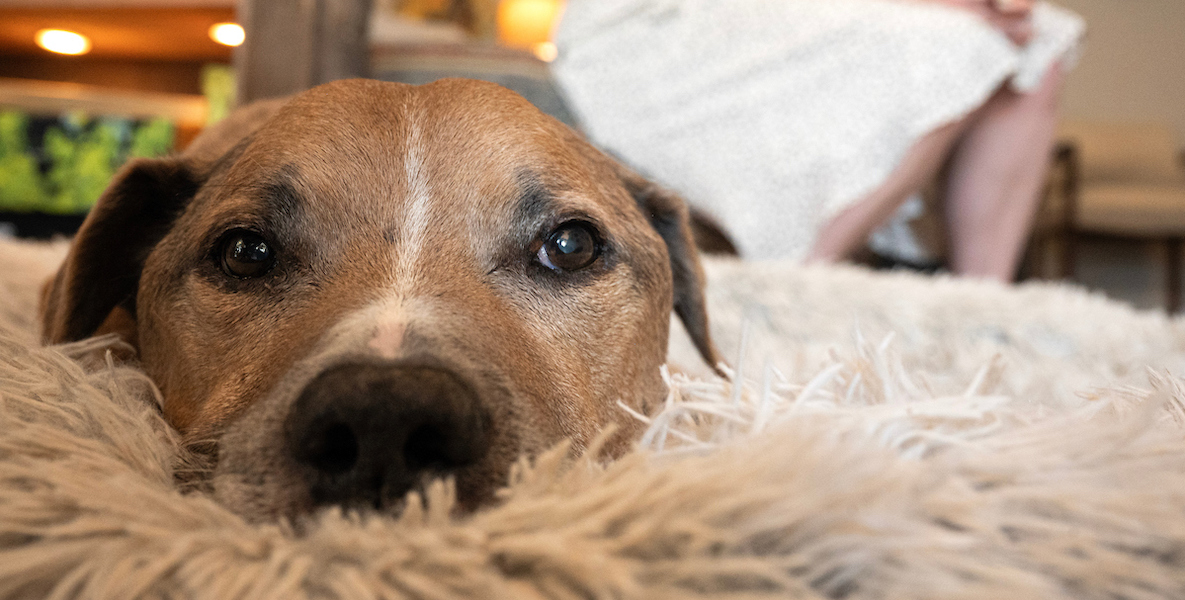They say a picture is worth a thousand words. They don’t say — but they should — that a pitbull named Gemma was worth well over a thousand animals’ lives. In 2012, Erin Lewin fell in love with and adopted a 10-year-old rescue pittie from ACCT, where she volunteered. Her friend and fellow volunteer Samantha Holbrook took notice.
“You could see there was an instant connection,” says Holbrook, then a Temple Law student. “Even though their time together was short, the quality of that time was invaluable.” It was also motivational.
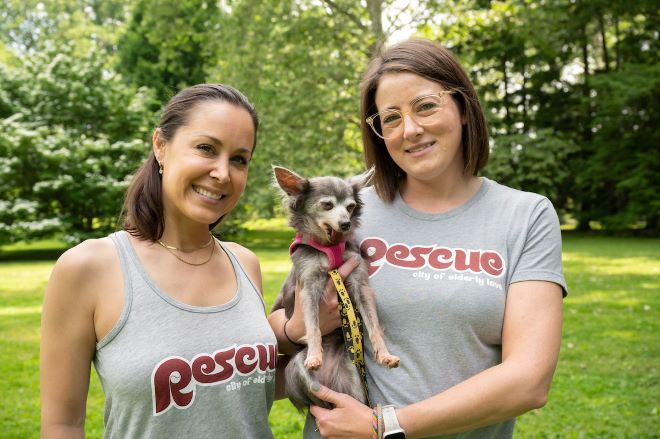
Gemma and Lewin’s relationship “prompted the other volunteers to look at the seniors in the shelter a bit differently,” says Holbrook, “We realized that, sadly, the seniors are often the ones that are most often overlooked. They get passed over for younger puppies or kittens.”
Holbrook and Lewin wanted to change all that. In 2014, they started a marketing campaign to help these oldies but goodies find forever homes by helping potential adoptees, Holbrook says, “fall in love with the old gray phase.” They called their effort “City of Elderly Love.” Today, the campaign is a full-fledged, all-volunteer, foster-based operation that has spared the lives of more than 1,075 of Philadelphia’s elderly dogs and cats.
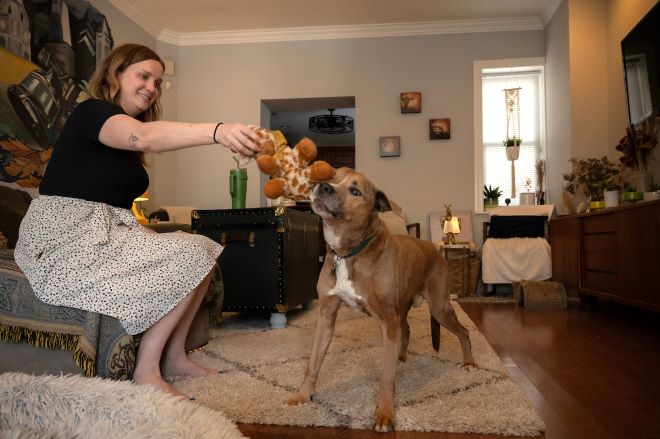
Older dogs are overlooked dogs
To love a pet is to face the almost inevitable fact that one day, you’ll say goodbye to them. As much as dog and cat people may wish it weren’t true, our beloved companions’ life spans are typically a fraction of humans’, which means, typically, people with pets must deal with their pets’ death.
“The seniors … get passed over for younger puppies or kittens.” — City of Elderly Love Co-founder Samantha Holbrook
But sometimes, the situation happens the other way around. People are also animals. We die. We also get sick. Sometimes we move to a place where pets are not welcome, or a family member is allergic, fearful, or simply objects. Although organizations like ACCT have ways to help humans keep their animals — their onsite Let’s Stay Home Fund (founded by City of Elderly Love and Citizens for a No Kill Philadelphia) can provide resources such as pet food, veterinary care, temporary foster homes to help people keep their pets — animals still get surrendered.
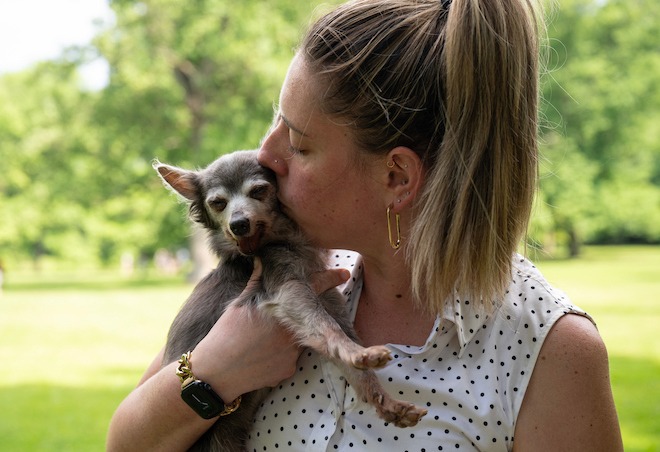
Once in a shelter, pets unwittingly enter a beauty contest. Cuter, younger animals with fewer medical issues are the first to be chosen. The ASPCA says senior dogs are half as likely to be adopted as younger dogs or puppies; they also spend four times longer in shelters. These are some reasons ACCT charges $25 to adopt a dog who’s seven or older, and $255 for a puppy.
Even sadder, when ACCT and other shelters get full, older pets tend to top “time stamped” lists. A 2019 NIH report said adult and senior dogs (and cats) are four times more likely to be euthanized than puppies. City of Elderly loves’ main mission: “Save these lives,” says Holbrook.
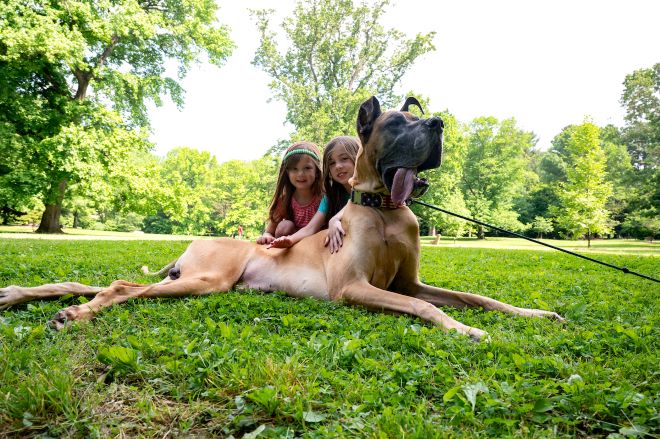
Old dogs, new digs
No doubt: Puppies and kittens are cute. But they’re also other things: energetic, destructive, demanding, untrained — including not housebroken. They’re also unpredictable. “As puppies age, they grow into themselves,” says Holbrook, “Before you know it, a six-month-old puppy has a different personality.”
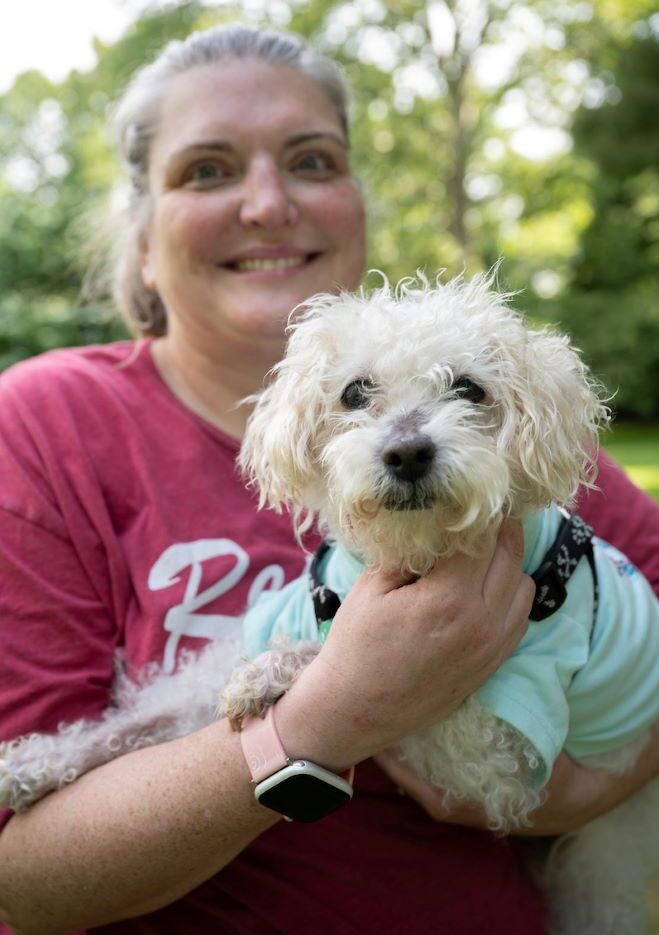
With seniors, especially senior dogs, you know what you get. Most know basic commands. Few need long walks or much exercise. Some need medical support — insulin shots for those with diabetes, dental care for the majority of them. City of Elderly love works with local vets to cover 100 percent of medical costs. They even provide free food.
But older animals also come with something else that’s less quantifiable: the knowledge that you’ve really, truly made a difference. A few years ago, the Holbrooks — Samantha is now an attorney, married with kids — adopted a 10-year-old brindle pittie named Major. They had two dogs at the time, but there was something about the old, time stamped guy whose person had died.
“You might not have that much time together, but … you can be responsible for making that animal’s last days be their best days.” — Holbrook
“Major became part of our pack,” she says, “Here, I’m thinking, we might not have much longer with this dog. But being able to see the transformation of him from day one to three, four years later when we had to say goodbye to him, was life changing. He could have spent his last days alone in a shelter, but because we were able to take a chance on him, he got to experience joy: driving down to Florida, going to Massachusetts, spending his summers at the shore.”

The family, including the kids, were sad to let him go. But they were also happy — and deservedly proud.
“It’s just a level of fulfillment on both ends really, because you see what difference you make for that animal … You might not have that much time together, but you can spoil them rotten. You can be responsible for making that animal’s last days be their best days.”
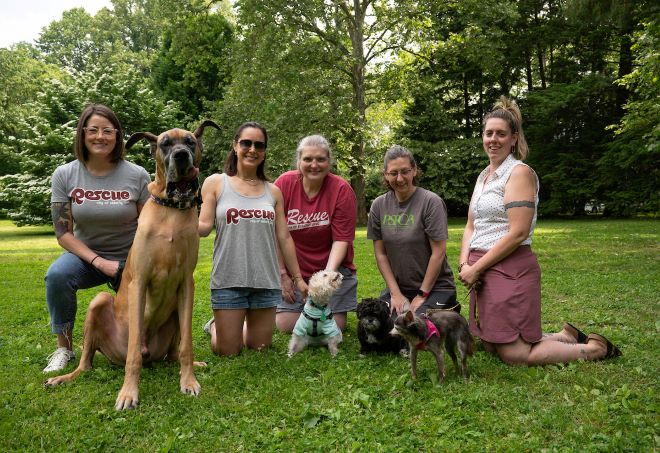
![]() MORE ON OUR BELOVED FURRY FRIENDS FROM THE CITIZEN
MORE ON OUR BELOVED FURRY FRIENDS FROM THE CITIZEN



